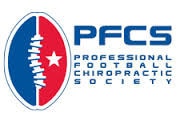A Disturbing Conversation with a Patient: Part 1
I recently had an interesting conversation with a patient on a very disturbing topic for those seeking a solution to their pain. This patient has been a patient for the last 9 months and has seen tremendous improvement and sustained pain-relief that he thought would only come after surrendering to joint replacement surgery. Some friends of his recommended he seek out our care and he hasn’t looked back since.
This patient asked me:
“If Adhesion is so important, then why doesn’t my primary doctor know about it? Why didn’t my surgeon send me over to have this taken care of so that I could be comfortable and prolong the health of my joints?”
First of all, that is a GREAT question!
I don’t have the perfect answer and I can’t speak for other doctors but I’ll try to weigh in on what I believe to be the issue.
The understanding of fibrous adhesion formation and its impact on the human body is still being understood. It’s not a regular topic in medical or chiropractic schools for this reason. In addition, the diagnosis and treatment of fibrous adhesion is not tested on the board exams. Simply put, schools prepare doctors to get a license, they don’t necessarily prepare a doctor to be successful in helping people.
In addition, your primary doctor is not a musculoskeletal health expert and I would never expect them to spend the amount of time and energy needed learning to diagnose, let alone treat, these types of conditions. They have their plates full treating so many other things, and we need them to continue to focus on those things. So to add all the possible injuries to muscles, nerves, and joints in the body to their already full plate, is a huge ask. Especially when the foundation of treatment for these conditions is hands on manual therapy. (We’ll save this last thought for later in Part 2 of this article.)
However, when your primary doctor sends you home with ibuprofen instead of referring you to an office like ours that SPECIALIZES in musculoskeletal care, we have a problem. This is a direct disservice to you as the patient. Ibuprofen has never healed an injury, it simply covers up the pain and allows that injury to get worse down the road.
But, I get it. Most patients throw these types of problems at their doctors at the end of their annual physicals. The doctor is ready to step out of the room and move on to their next patient in a very busy practice where he/she has no choice but to see as many patients as possible because the insurance companies are employing every last strategy to deny as much reimbursement as possible, and then you as the patient are like….
“Oh, and my back has been really sore and achy lately. Can you take a quick look at that?”
Yikes! (For the record, you as the patient are not at fault here. You should be asking for help when you have pain.)
The ensuing conversation is typically
“Yea sure, ok, looks like it’s a little swollen, probably some inflammation in there, take some ibuprofen and rest.”
They’re trying to help, but it’s the wrong approach. This is so wrong on so many levels. There are tests to determine what is wrong with your back, neck, shoulder, knee, etc. and they need to be done in order to properly diagnosis what is wrong BEFORE anyone can tell you what to do about it.
For Pete’s sake, the first thing your primary doctor did when you walked into their office was administer tests to measure your height, weight, and blood pressure to get an idea of how your body had changed since your last visit. THESE ARE TESTS TO HELP DETERMINE YOUR HEALTH, and musculoskeletal care is no different.
How the conversation should go is as follows:
“That isn’t my area of expertise, you should really consult with a musculoskeletal health expert so that doesn’t get any worse. Here are a few that we trust.”
Although you as the patient may think they are ignoring your request for help, they gave you the best and most helpful answer. What they’re saying is:
“I’m not the guy for that job, there are better doctors that can do a better job for you, you should see one of them.”
Done.
Now, to try and answer why your surgeon hasn’t recommended you fix the adhesion. This is a lot tougher question. Simply put, your surgeon cuts. If you are not a candidate for surgery, you are typically dismissed by your surgeon and referred to physical therapy. This is because they are taught throughout their schooling and careers that when a patient is not a candidate for surgery, they need physical therapy. If the patient doesn’t get better with physical therapy, then they are referred back to the surgeon for injections or for surgery. They are relying on the physical therapist to be educated in all things conservative for musculoskeletal injuries.
Unfortunately, there isn’t a single physical therapist in New York State that has done the extensive training to be an expert in diagnosing and fixing fibrous adhesion. This leads us to the next question of:
“I’ve seen incredible results, why don’t more doctors or therapists, like yourself, do this type of work? Why don’t more doctors diagnose and treat adhesion?”
Stay tuned for Part 2…….
Our system of evaluation and non-surgical treatment will help you solve that problem in a matter of weeks, helping you move pain-free into your 80’s and 90’s. Stop ignoring your body and give us a call today, 716-677-5525.
Dr. Brian A. Zelasko
Musculoskeletal Specialist
Board Certified Doctor of Chiropractic
Prime Spine Associates
2701 Transit Rd., STE 135
Elma, NY 14059
www.Prime-Spine.com
Certified in Advanced Chiropractic Care






